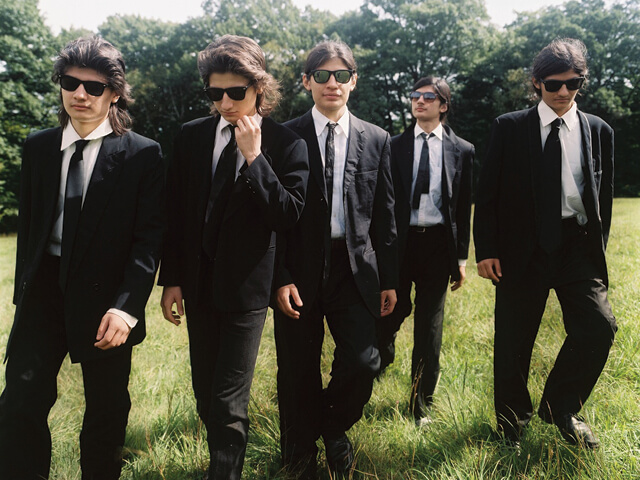Leader of the Pack: Talking with Director Crystal Moselle about The Wolfpack


Photo by Dan Martensen
The title of The Wolfpack, the Sundance-sensation documentary, hearkens back to the film’s origins, on the day in 2010 when the six Angulo brothers ran past Crystal Moselle on First Avenue, black hair whipping behind them.
Fort Greene resident Moselle, a director of commercials and music videos, met the subjects of her first feature film, Bhagavan, Govinda, Narayana, Mukunda, Krisna, and Jagadesh Angulo (named for Hindu deities), just as they were unleashed onto the world. They had grown up almost entirely within the walls of their Lower East Side public-housing apartment with their abusive father, Oscar, harboring vaguely sinister, New Age-y notions of maintaining purity despite the corruption of Sin City. (Over the course of the film, as Moselle’s point of view takes in more of the outside world, Oscar comes into focus and down to size: perpetually drinking wine out of water glasses, weaving angrily through a fog, he seems less a cult leader than a frightened man far from home.) What the boys did have was movies: thousands of titles on VHS and DVD.
As the film tells it, the Angulo brothers built up a world through transcribing, and then re-enacting, their favorite films. Moselle, reached by phone prior to the film’s June 12 theatrical release in NYC, elaborates that, at first, this was just play, albeit with a scrupulous attention to detail: “If in the movie, the character holds a coffee cup with his left hand and chuckles to himself, that’s what they’d do. If there’s a song playing on the radio in the movie, they’ll hum it.” Eventually, the idea came to film these re-enactments—Moselle thinks that Pirates of the Carribean was their first film, and in The Wolfpack we see clips of “remakes” shot by both the Angulo brothers and Moselle. The experience of shooting them was, according to Moselle, nothing like making a movie, at least not the kind of movie her subjects loved. No setting up shots: they would physically incarnate the cinematic experience, but strictly from the perspective of audience members, going like a play, start to finish, with the props ready beforehand, and Moselle racing around the apartment, camera in hand, trying to keep up. “I asked them at one point, ‘Who directs these?’ and they were like, ‘What do you mean? The movie director directs them,’” she says.
The Angulos were typical adolescent males, at least, in their taste, which correlated closely with the IMDB Top 250. The Dark Knight and Reservoir Dogs are especially prominent in the film; the latter, with its scenes of stylish male camaraderie, like-you-own-the-place power-walking, and “Stop pointing that gun at my dad!” bravado, shoulders an obvious subtextual weight in the re-enactments seen in the film.
Moselle uses home-movie footage of the Angulo family’s hermetic upbringing (some footage from the early-to-mid 2000s appears to have been shot on a VHS camcorder), as well as new interviews and footage from within the apartment, to depict the lives of the ‘pack before their meeting, and follow their progress over the next few years. Though the film is a privileged glimpse at a private world, there were limits to Moselle’s access, which she says she worked around by giving the boys a consumer digital camera to use when she wasn’t around—or allowed to be. Some of the film’s most intimate scenes—a boys-only “party time,” a personal breakthrough for their recovering hippie-casualty mother—were shot on that camera.
In the year of their meeting, we see, Moselle went with the Angulo brothers to see The Fighter in theaters, and we watch as the balance of power shifts in the family, and the boys begin to fulfill themselves—personally and creatively—inside and outside of the home. In reviewing the footage her subjects shot themselves, Moselle says, she got to watch them develop as filmmakers: despite the fidelity of their re-enactments, they’ve obviously studied cinema avidly, and this begins to become evident as the film ends, when we see their first forays into original filmmaking. Here, we see their experience, imagination, and love of cinema take flight. Moselle says that this progression is ongoing, as her subjects continue to branch out into the worlds of music and environmental activism, as well as acting and cinematography. More than following any particular career trajectories, she says, they are now happy to be charting their own path through the world. ♦
You might also like 




















